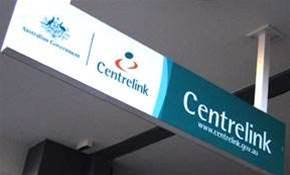The Department of Human Services has failed to properly deliver and communicate its automated data matching program to citizens, the Commonwealth's ombudsman has found.

It said these usability and transparency issues have affected the quality of decisions made by the controversial online compliance intervention (OCI) system.
The ombudsman's office has been investigating DHS' automated data matching process for Centrelink debt since January, after reports began to emerge about incorrect debt notices being sent out by the system.
DHS started using the OCI system in force last September, replacing parts of a formerly manual debt-raising process with an automated system.
The system matches earnings reported to Centrelink against employer-reported income data held by the Australian Taxation Office (ATO), and asks an individual to explain any discrepancies.
The ombudsman's office has received 241 complaints from people receiving automated debt notices since November, and 1563 "approaches" about Centrelink matters in January alone - an 87 percent increase on the same time last year.
However, the office has found no issue with the technology underpinning the data matching process.
It said the rate of raised discrepancies that were wiped after consultation with the individual - 20 percent of cases - was in line with the previous manual process.
"After examination of the business rules underpinning the system, we are satisfied the debts raised by the OCI are accurate, based on the information which is available to DHS at the time the decision is made," acting ombudsman Richard Glenn wrote in his report today [pdf].
"However, if the information available to DHS is incomplete, the debt amount may be affected. It is important for the system design for customers to respond to information requests from DHS so decisions are made on all available information."
Issues existed, however, in the DHS' delivery and communication of the service to customers, the ombudsman said.
Initial messaging of a discrepancy via letters to individuals was "unclear and did not include crucial information such as a contact phone number for the DHS compliance team".
"Many complainants did not realise their income would be averaged across the employment period if they did not enter their income against each fortnight. This resulted in people with fluctuating or intermittent income having their income averaged. In some cases this was a more favourable outcome for the customer and in others, the debt was overstated," the office said.
Similarly, poor service delivery was a "recurring theme" in complaints to the ombudsman.
"Customers had problems getting a clear explanation about the debt decision and the reasoning behind it," the office said.
"As the compliance helpline number was initially excluded from letters and was not obvious in the system, customers called general customer service lines resulting in long wait times.
"They could not always get clear information and assistance to use the online system. Service centre staff did not always have sufficient knowledge about how the OCI system works, highlighting a deficiency in DHS’ communication and training to staff."
Glenn said many of the problems DHS and citizens have been experiencing with the system could have been prevented with "better project planning, system testing and risk management".
"This includes more rigorous user testing with customers and service delivery staff, a more incremental rollout, and better communication to staff and stakeholders," his report stated.
"DHS’ project planning did not ensure all relevant external stakeholders were consulted during key planning stages and after the full rollout of the OCI. This is evidenced by the extent of confusion and inaccuracy in public statements made by key non-government stakeholders, journalists and individuals."
Glenn's office has recommended DHS undertake a comprehensive evaluation of the automated system before it rolls it out any further.
The ombudsman noted that DHS has made "positive changes" to the system in the past three months.
But "more improvements" are needed to ensure the system "meets minimum administrative law requirements and reflects good public administration," Glenn said.
It advised making letters and system messages clearer to customers, providing more help for customers gathering information about their income, giving more assistance to vulnerable customers, and reviewing recovery fees spat out by the automated system.
The ombudsman’s office said DHS had agreed to all its recommendations. The watchdog will monitor the agency's progress in implementing its advice.
DHS is planning to expand the system in the first half of this year to include non-PAYG employment data, and has promised the ombudsman it will take into account the lessons learned from the first rollout.
A senate committee is also investigating the data matching system and is scheduled to report on its finding by May 10.


_(20).jpg&h=140&w=231&c=1&s=0)
_(28).jpg&h=140&w=231&c=1&s=0)
_(23).jpg&h=140&w=231&c=1&s=0)
.png&h=140&w=231&c=1&s=0)





 iTnews Executive Retreat - Security Leaders Edition
iTnews Executive Retreat - Security Leaders Edition
 iTnews Benchmark Awards 2026
iTnews Benchmark Awards 2026
 iTnews Cloud Covered Breakfast Summit
iTnews Cloud Covered Breakfast Summit
 The 2026 iAwards
The 2026 iAwards












_(1).jpg&h=140&w=231&c=1&s=0)



